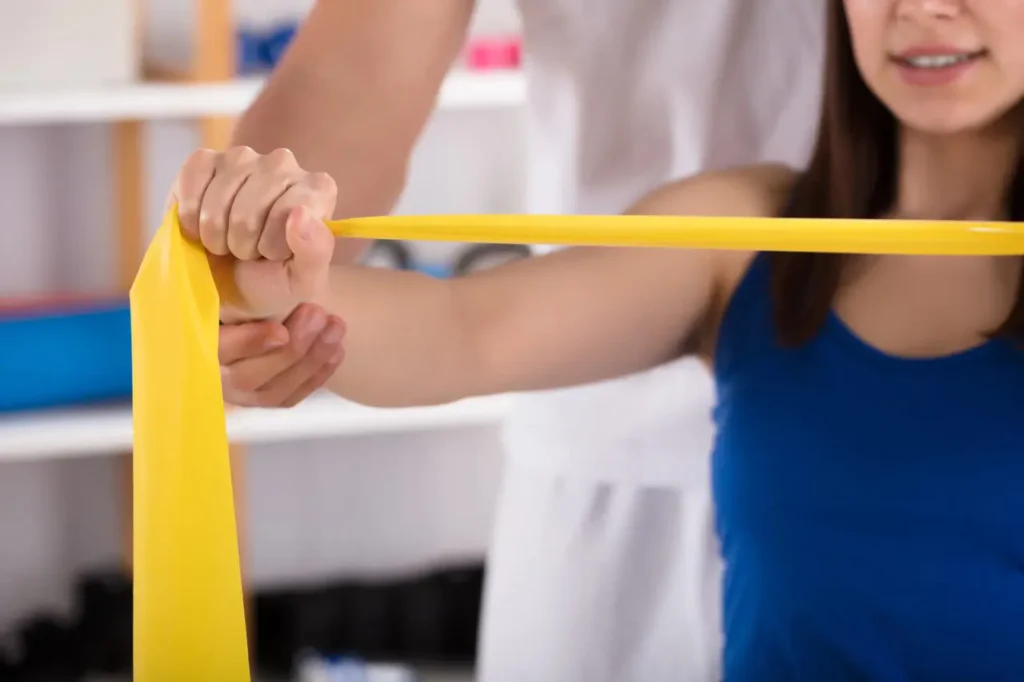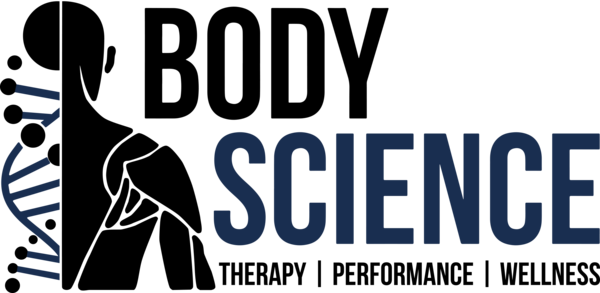
Sports physiotherapy is a vital component in the world of athletics, offering specialized care that goes beyond the scope of general physiotherapy. Designed to address the unique demands and challenges faced by athletes and active individuals, sports physiotherapy focuses on both the prevention and treatment of sports-related injuries. Whether you’re a professional athlete or someone who enjoys staying active, understanding how sports physiotherapy can enhance your performance and aid in recovery is essential for maintaining your physical health and achieving your fitness goals.
Sports Physiotherapy vs. General Physiotherapy: Understanding the Differences
Sports physiotherapy is a specialized branch of physiotherapy that focuses on the prevention, assessment, and treatment of injuries related to sports and exercise. Unlike general physiotherapy, which addresses a wide range of musculoskeletal and neurological conditions, sports physiotherapy specifically targets issues that athletes and active individuals encounter. Sports physiotherapists are trained to understand the unique demands that different sports place on the body and tailor their treatments accordingly.
Improving Athletic Performance: How Sports Physiotherapy Helps
Physiotherapy plays a crucial role in enhancing athletic performance through a variety of targeted interventions. By focusing on exercises designed to improve muscle strength and joint flexibility, physiotherapy ensures that athletes can achieve peak performance. Additionally, it works to optimize movement patterns, reducing the risk of injury and improving overall efficiency in physical activities.
Recovery and rehabilitation are also integral aspects of physiotherapy, enabling athletes to recover quickly and return to their sport at an optimal level of performance. Furthermore, physiotherapy incorporates preventative strategies by identifying and addressing potential weaknesses or imbalances, helping athletes avoid injuries before they occur.
Common Sports Injuries Physiotherapy Can Help With
Sports physiotherapy can treat a wide range of injuries, including but not limited to:
- Sprains and Strains: These injuries involve overstretching or tearing of ligaments (sprains) and muscles or tendons (strains), often caused by sudden movements or overuse.
- Tendonitis and Tendinosis: Tendonitis is the inflammation of a tendon, while tendinosis refers to the degeneration of the tendon tissue due to chronic overuse, both leading to pain and reduced mobility.
- Ligament Injuries (e.g., ACL Tears): Ligament injuries, such as ACL tears, occur when the ligaments connecting bones in the knee are overstretched or torn, often requiring targeted rehabilitation to restore stability.
- Muscle Tears: Muscle tears result from excessive stretching or overloading of muscle fibres, leading to pain, weakness, and the need for guided exercises to regain strength.
- Joint Dislocations: Dislocations occur when bones are forced out of their normal positions in a joint, requiring careful realignment and rehabilitation to regain full function.
- Fractures: Fractures are breaks in bones often caused by direct trauma or excessive force. Physiotherapy aids in restoring strength and mobility post-healing.
- Overuse Injuries (e.g., Shin Splints, Stress Fractures): Overuse injuries like shin splints and stress fractures develop from repetitive stress on bones and muscles, necessitating rest and a gradual return to activity.
- Post-Surgical Rehabilitation: Following surgery, such as ACL reconstruction or fracture repair, physiotherapy is crucial in regaining strength, mobility, and ensuring a full recovery.
How Long Does It Take to See Improvements with Sports Physiotherapy?
The timeline for seeing improvements varies depending on the type and severity of the injury, the athlete’s overall health, and their adherence to the prescribed treatment plan. Generally, athletes may start to notice improvements within a few sessions, but significant recovery and return to sport can take several weeks to months. Consistency in attending physiotherapy sessions and following home exercise programs is key to a successful recovery.
Integrating Sports Physiotherapy with Other Treatments
Sports physiotherapy often integrates with other treatments such as:
- Medical Management: Collaboration with physicians is essential for addressing injuries that may require medication or surgical interventions.
- Chiropractic Care: Chiropractic care focuses on aligning the spine and joints, which can significantly enhance overall body function. By addressing misalignments or joint issues, chiropractic adjustments can complement physiotherapy by reducing pain, improving range of motion, and enhancing the effectiveness of rehabilitation exercises.
- Massage Therapy: Massage therapy plays a crucial role in relieving muscle tension, reducing inflammation, and promoting circulation. By incorporating massage into a physiotherapy regimen, athletes can experience faster recovery times, decreased muscle soreness, and improved flexibility, which are vital for returning to peak performance.
- Nutrition and Dietetics: Proper nutrition is a key component of recovery and athletic performance. Sports physiotherapists often work with dietitians to ensure that athletes are receiving the nutrients necessary to support tissue repair, maintain energy levels, and enhance overall health, all of which are critical for effective rehabilitation and sustained athletic success.
- Psychological Support: The mental aspects of injury and recovery are just as important as the physical ones. Integrating psychological support, such as counselling or mental skills training, helps athletes manage the emotional challenges of injury, maintain motivation, and develop coping strategies, ultimately contributing to a more successful and complete recovery
Preventing Sports Injuries: The Role of Physiotherapy
Physiotherapy is highly effective in preventing sports injuries through several preventative measures. Strength and conditioning programs are specifically designed to build resilience in muscles and joints, which is essential for athletes. Flexibility and mobility training are also key components, helping to reduce the risk of strains and sprains by ensuring that the body remains limber and adaptable. Additionally, biomechanical assessments conducted during physiotherapy sessions identify and correct faulty movement patterns that could lead to injury. Finally, through education and training, physiotherapists teach athletes proper techniques and body mechanics, equipping them with the knowledge they need to avoid injuries and maintain peak physical condition.
Recommended Lifestyle Changes to Support Sports Physiotherapy
Several lifestyle changes can support the effectiveness of physiotherapy:
- Balanced Diet: Proper nutrition aids in tissue repair and energy levels. Implementing a balanced diet rich in proteins, vitamins, and minerals is crucial for tissue repair and maintaining energy levels. Incorporating foods like lean meats, leafy greens, and whole grains can provide the necessary nutrients to accelerate recovery and support overall athletic performance.
- Adequate Hydration: Hydration is essential for overall health and recovery. Drinking sufficient water throughout the day helps maintain joint lubrication, supports metabolic processes, and aids in muscle recovery, especially after intense physiotherapy sessions.
- Quality Sleep: Healthy sleeping habits are critical for healing and performance. Aim for 7-9 hours of uninterrupted sleep each night to allow the body to repair tissues, consolidate muscle memory, and reduce inflammation, all of which contribute to faster recovery from injuries.
- Stress Management: This helps reduce the negative impact of stress on recovery. Effectively managing stress through techniques like deep breathing exercises, meditation, or yoga can reduce the negative impact of stress hormones on the body’s healing process. Incorporating regular relaxation practices can enhance mental well-being and support a more effective recovery.
- Consistent Exercise Routine: Being consistent with your exercise routine maintains overall fitness without overloading the injured area. Cross-training is also important for athletes and active individuals, as it helps prevent overuse injuries by varying the muscle groups and joints being worked on. Activities like swimming, cycling, or gentle stretching can complement physiotherapy by improving cardiovascular health and flexibility, while avoiding further injury.
Reach New Heights
At Body Science Therapy in Mississauga, we understand the unique demands that sports place on your body. Our experienced sports physiotherapists are here to help you recover from injuries, improve your performance, and prevent future setbacks.Don’t let pain or discomfort hold you back from reaching your full potential. Book an appointment with us today and take the first step towards achieving your athletic goals with personalized treatment plans tailored to your needs. Your journey to peak performance starts here!
